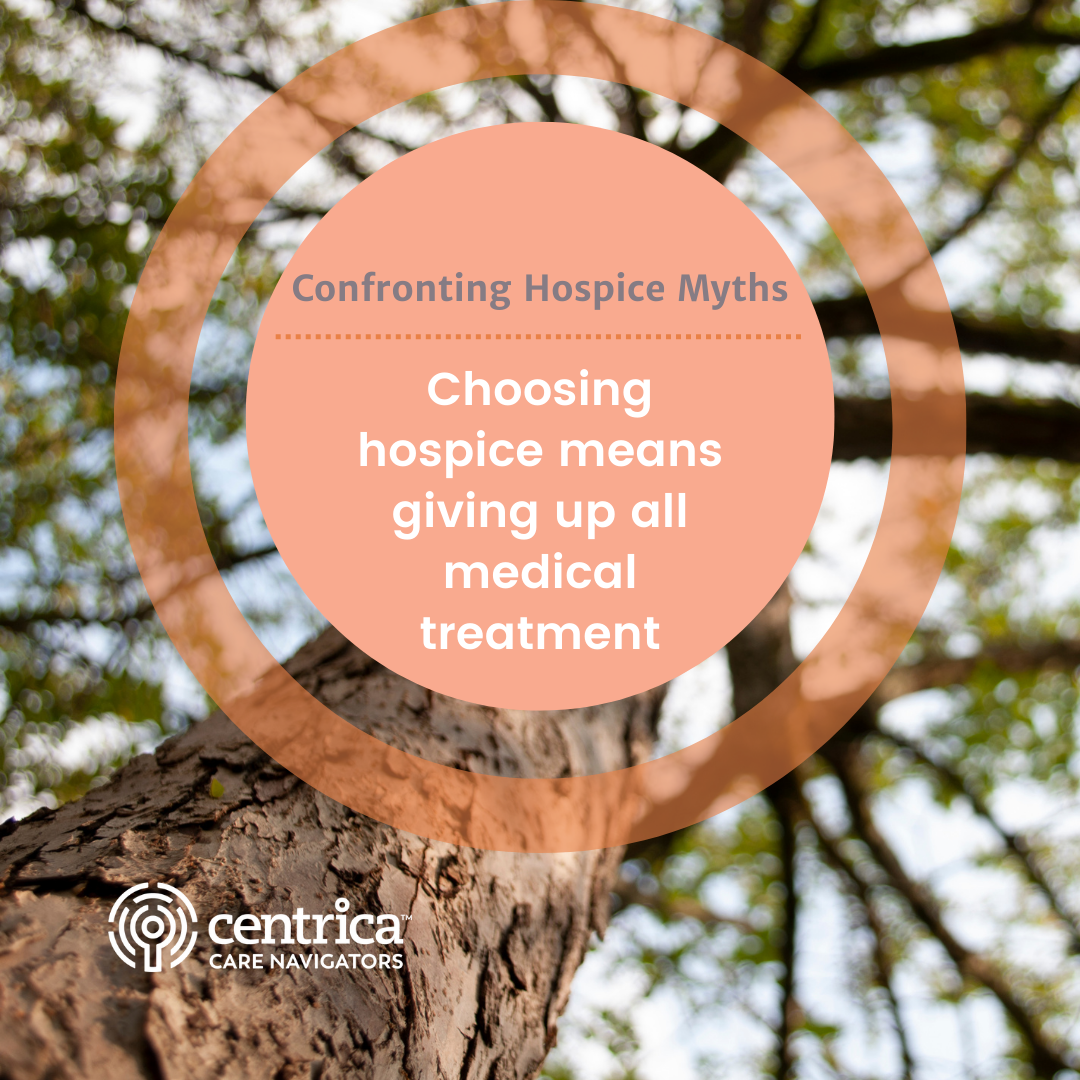We’ve explored several of the myths of hospice care here in the blog recently, and a lot of them have the same thing in common: the idea that the life of a patient in hospice care is done. The thought is that the minute someone is in hospice there’s no longer a need for any kind of support, including further medical attention.
That’s just not true.
Care for a reason
Centrica Care Navigators has the word “Care” in it for a reason – we give many different kinds of care to our patients, even those in hospice (officially defined as people who are expected to live 6 months or less if the illness runs its normal course).
Patients may not be trying to cure a life-limiting illness any longer, but they do still receive appropriate medical treatment. It’s the kind of care they need to manage pain and control symptoms of their illness and live their best life possible for as long as possible.
Hospice is not about curing a disease. At the point hospice becomes an option, the patient and their doctor have agreed that the better choice is to find a comfortable way to die instead of turning to potentially expensive, uncomfortable, unsuccessful treatments.
Hospice is about comfort, making things better so a patient can spend their remaining time with family and friends, focusing on what’s most important to them.
What happens in hospice?
Every situation is unique, of course, but there are some experiences that are common to hospice stays. Our doctors, nurses, aides, and other staff regularly visit patients to give them medical attention and social and emotional support. This can include medications for comfort, for example. It can also include a friendly companion to talk to, or someone who can help with matters of faith, since professionals like social workers and chaplains are part of a care team.
Each patient receives a customized Plan of Care, developed in cooperation with the patient’s own health care provider, if they want to work with that doctor.
Many times, patients can stay in their own homes throughout their care. When doctors feel home isn’t the right option, they can find comfort and expertise at our hospice residential sites or other care facilities, with the support of the hospice team.
Making life comfortable
Medical care in hospice includes nearly anything that helps a patient control the symptoms of their life-limiting illness, from medication to monitoring health, to supporting their family and caregivers. It’s about making the end of life as comfortable and as valuable as it can be.
You can learn more by exploring our website or calling Centrica Care Navigators at 269.345.0273.




